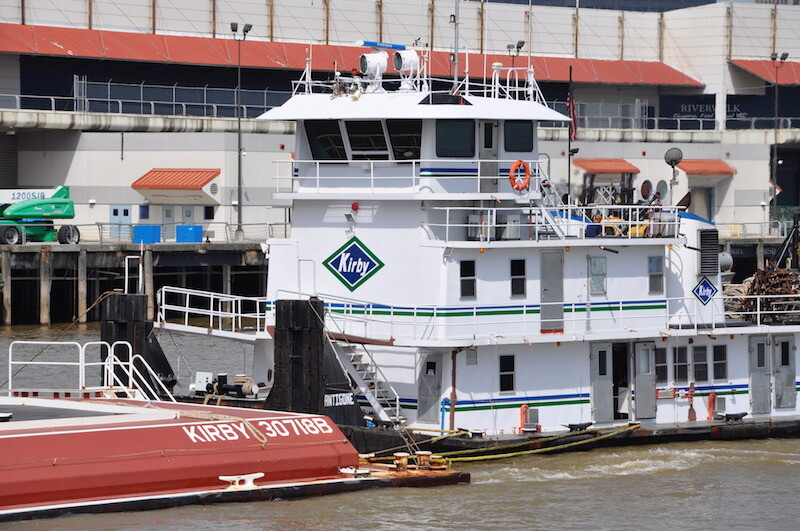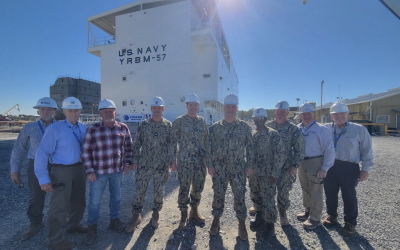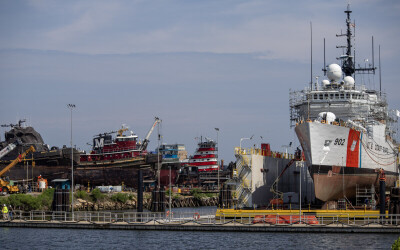Kirby Corp, the nation’s largest tank barge operator, reported a rapidly improving financial situation toward the end of the first quarter of 2022 and predicted continued growth as the year progresses and demand for barge services improves.
In announcing the company’s first-quarter results today in Houston, Kirby CEO David Grzebinski said operations and revenues were hit hard in January and February as Omicron, the highly contagious Covid-19 variant, sidelined crews and boats, and surging fuel costs caused revenue to slip and operating costs to jump. But as the Omicron surge subsided and refineries ramped up production, barge operations improved from about 80% utilization in the early winter to pre-pandemic levels of 90% in mid-March.
“Kirby’s businesses continued to gain momentum with improved market conditions and increased demand, delivering sequential and year-on-year revenue and earnings growth. These tailwinds were somewhat offset by the impact of the Covid-19 Omicron variant, which we estimate reduced marine transportation earnings by approximately $0.10 per share during the first quarter,” he said in a conference call. At one point, Kirby had 15 boats sidelined, causing “a lot of cost and disruption.”
In the coastal marine business, Grzebinski said demand for refined products and black oil transportation modestly improved in the first quarter, which drove up barge utilization and some small rate gains. But the impact of rising Covid infections on operations and reduced coal shipments resulted in lower revenues and an operating loss. He said the announcement in March of Kirby’s launch into the offshore wind sector by providing barge transportation services for offshore wind towers off New York over the next 20 years “will provide significant revenue and earnings growth potential for our offshore business.”
A return of production in the oil patch kept business humming for the company’s distribution and services unit as demand remained strong for new transmissions and environmentally friendly pressure pumping equipment and frac-related power generating equipment. Supply chain bottlenecks posed problems and delayed deliveries, however.
He said refineries and petrochemical industries are “doing better than expected” at the moment, which has created “the best (barge) pricing environment that we’ve seen.”
“Our outlook for 2022 remains favorable, and we expect meaningful quarterly earnings progression for the remainder of the year,” he said, adding that persistent inflation, uncertainties over the war in Ukraine and its effect on world trade, a tight labor market, and perhaps a move toward a national recession could impact future results.
He predicted that the barge supply will remain “extremely limited” going forward as companies find it hard to crew vessels and not many new barges are being built due to high steel prices.
But Grzebinski observed that the past 6-8 weeks have seen a strong uptick in the barge market as customers are making more money and their demand is strong for services. The pace of recovery of the inland barging market, he said, has been “better than anticipated.”





